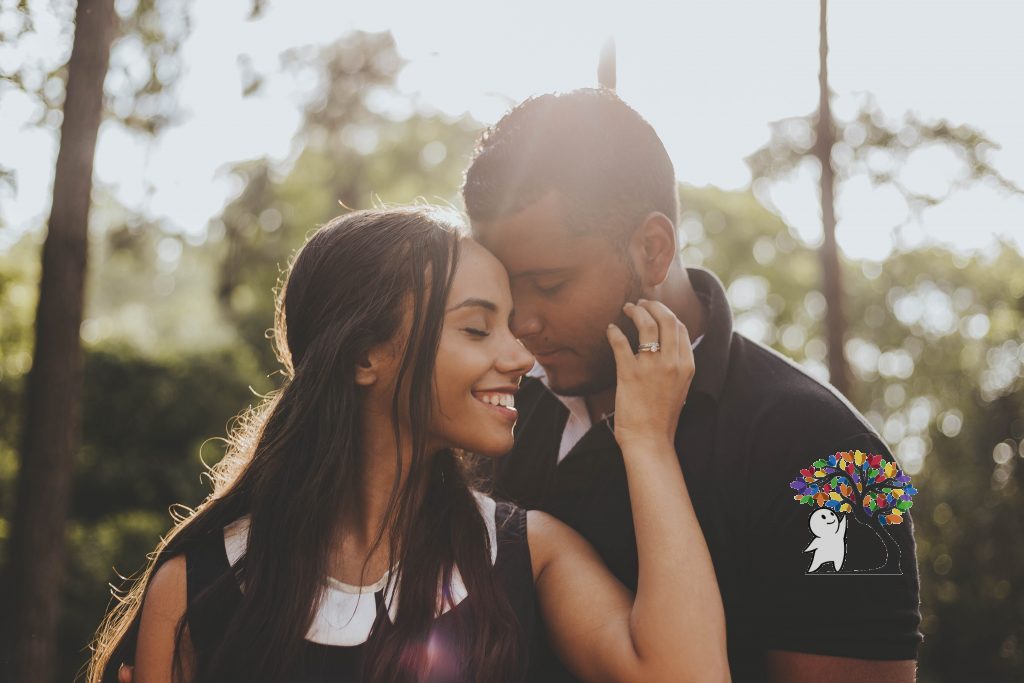5 Stages of Love, Most People Stop at 3

Love is one of the most interesting topics psychology has to offer, and certainly one we’re all curious about, wouldn’t you agree? And though it can mean something different for everyone, that doesn’t stop us from trying to better understand it and seeking to learn how to nurture it. And though psychologists have put forth plenty of ideas and theories about love — what comprises it, the many faces of it, how and why it happens — something that maybe we don’t explore enough is how love develops over time.
With that said, if this is something you’re curious about, read on to learn more about the 5 stages of love (and why most people stop at 3!):
Stage 1: Infatuation & Early Attachment
According to clinical psychologist Dr. Deborah Khoshaba, who specializes in relationship counseling, the earliest stage of falling in love has a lot to do with attraction, infatuation, and early attachment. Often, people will experience a strong sense of euphoria being around the object of their affection, and when their feelings are reciprocated, life will seem all the sweeter for it. They’ll get butterflies, laugh more, flirt all the time, and feel little else but passion and playfulness. This is usually everyone’s favorite stage of love because it’s all about fun and romance.
Stage 2: Getting Serious
Enter stage two. Once the initial glow of first falling in love wears off, couples will often start to get serious about their relationship. This is usually the phase when a lot of big commitments are made, like saying “I love you” for the first time or learning to compromise for your partner. Couples who don’t put in the work, says psychotherapist and clinical social worker Allison Abrams, will likely drift apart once their attraction wears off and may even find themselves getting infatuated with other people.
Stage 3: The Crisis Stage
In a decades-long clinical study on how the brain reacts to love, conducted by neuroscientist Dr. Helen Fisher and clinical psychologist Dr. Lucy Brown, the more evolved part of the brain will start to take over after couples have been together for a while. Participants described their love as “richer, deeper” and more rooted in “knowing (the other person) better.” Dr. Brown explains that this stronger bond is the result of facing a significant crisis together, which helped both parties see how much they’ve grown, changed, and whether or not they can continue to grow together. That’s why this is often referred to as the make-or-break point of relationships, and why most people stop at this stage of love.
Stage 4: Climbing Down from the Pedestal
Not all couples come out of the crisis stage, and those that do don’t emerge unscathed. It’s at this stage, after having faced a crisis together, that the couple see each other’s flaws and weaknesses most clearly, but learn to forgive and accept one another in spite of them. According to an article published by the online therapy and mental wellness platform BetterHelp, this stage is marked by a deeper commitment and strong feelings of contentment because it is no longer a love held up by ideals of romance or passion, but rather, by a strong foundation of friendship, trust, and mutual respect. t. Often, couples at this stage are married, have children, or live together.
Stage 5: Deep Attachment & Stability
Not long after the fourth comes the fifth and final stage of love: deep attachment and stability. According to the editorial team at BetterHelp, to reach this stage is quite the rare achievement as it means that a strong and lasting bond has been made. The relationship has already reached a place of balance, stability, and continued emotional fulfillment. The only thing left to do now is to keep it that way by remaining communicative, honest, and loving towards one another.
They say nothing worth having comes easy. Well, that’s certainly true when it comes to love. It can be beautiful and enthralling, yes, but far from the perfect fairy tale most of us may want to believe. But having a good understanding of the different stages a relationship goes through can help you navigate your way towards a more enduring and loving partnership.
So, what are your thoughts on this article? Or about love in general? Let us know in the comments down below!
References:
- Abrams, A. (2023, Jan 06). Navigating the 4 Stages of a Relationship. VeryWell Mind. https://www.verywellmind.com/the-four-stages-of-relationships-4163472
- BetterHelp Editorial Team. (2023, Mar 21). Navigating The 5 Stages Of Love. BetterHelp. https://www.betterhelp.com/advice/love/how-to-last-through-the-5-stages-of-love/
- Khoshaba, D. (2012, Mar 20). The Early Stages of Falling in Love. Psychology Today. https://www.psychologytoday.com/us/blog/get-hardy/201203/the-early-stages-falling-in-love




Responses